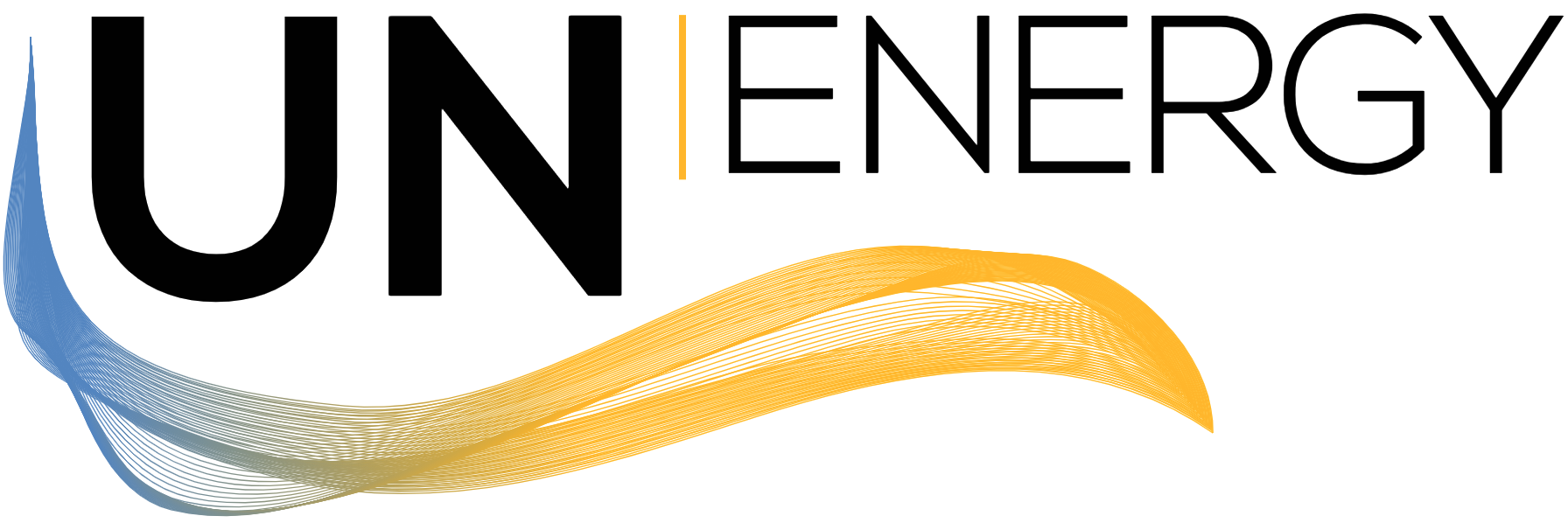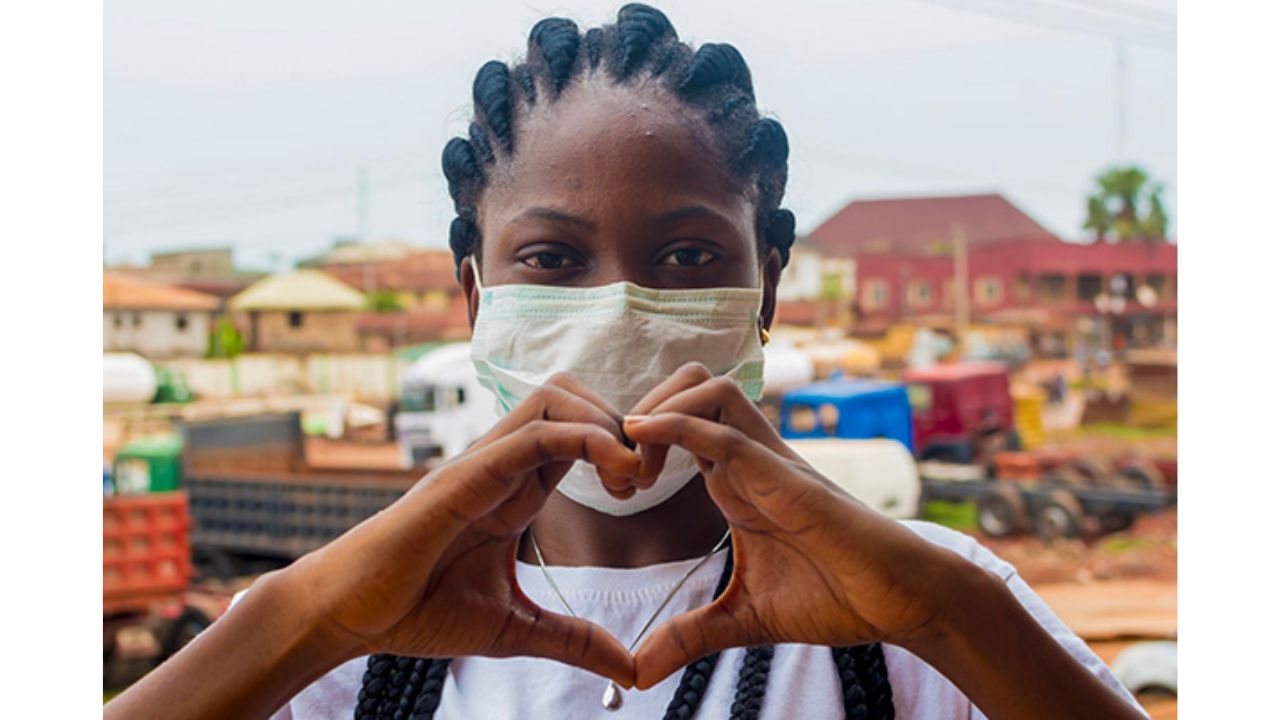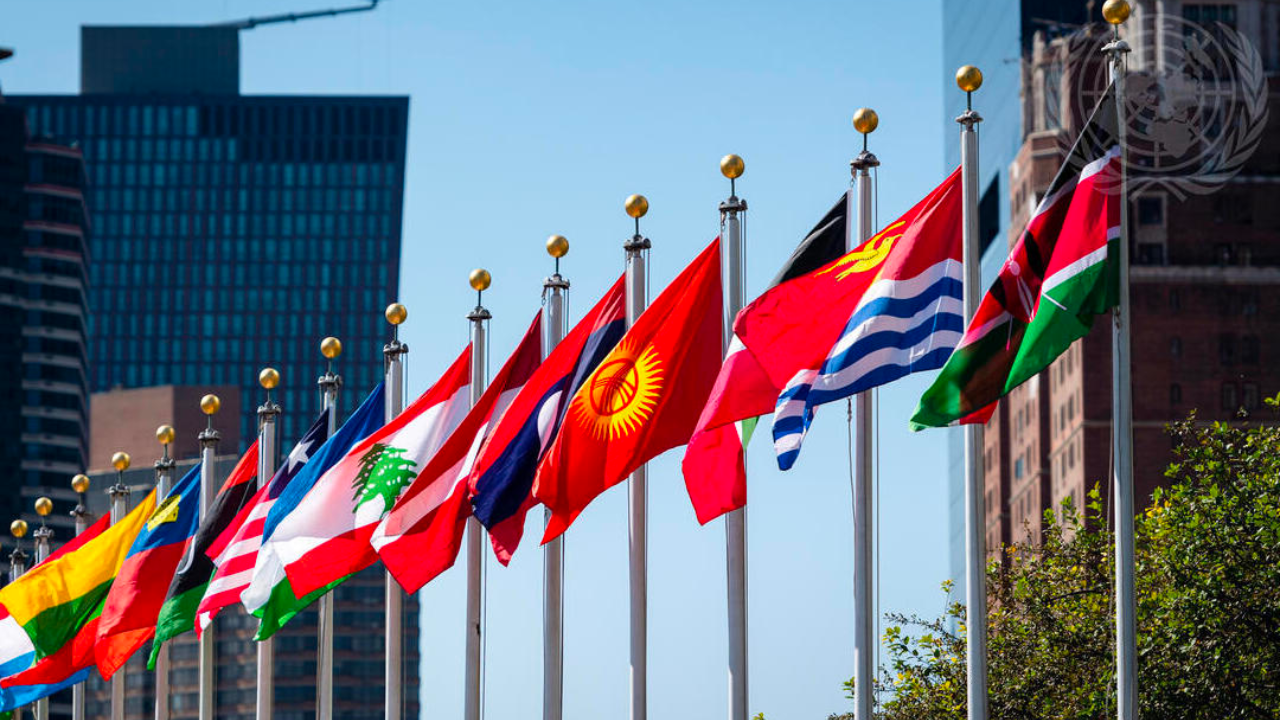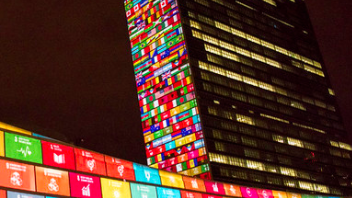

Leaders and Experts Join SDG7 Action Forum
to Expand Impact and Partnerships for a Just Energy Transition
Energy Compacts Show Continued Growth
Hundreds of leaders and experts from governments, international organizations, businesses and youth groups around the world came together on 24-25 September 2025 for fruitful discussions at the fourth annual EnergyNow SDG7 Action Forum, organized by UN-Energy on the margins of the UN General Assembly High-Level Week and as part of Climate Week NYC.
Over the two days, participants strategized how best to scale up innovative solutions and mobilize resources and partnerships on long-standing issues such as clean cooking, as well as tackling new challenges like AI -- all with the aim of accelerating progress towards Sustainable Development Goal 7 (clean and affordable energy for all) and a net-zero future.
At the Forum, the annual progress report on the Energy Compacts was launched, showing that commitments by governments, businesses and others have grown to $1.6 trillion in finance and investment towards boosting renewables and energy access by the 2030 SDG target, with $284 billion already mobilized. Compacts promoting action on 24/7 carbon-free energy and stronger roles for women and youth in the energy transition were among those that held dynamic sessions at the Forum.
Also launched at the Forum was a policy brief on linkages between clean energy for all (SDG7) and employment and economic growth (SDG8), presented by IRENA; as well as a policy brief on a just energy transition in least developed and landlocked developing countries and small island developing states, presented by OHRLLS.
EnergyNow SDG7 Action Forum 2025
Policy Briefs: SDG7 Policy Brief on Energy’s Interlinkages with Decent Work (SDG8)
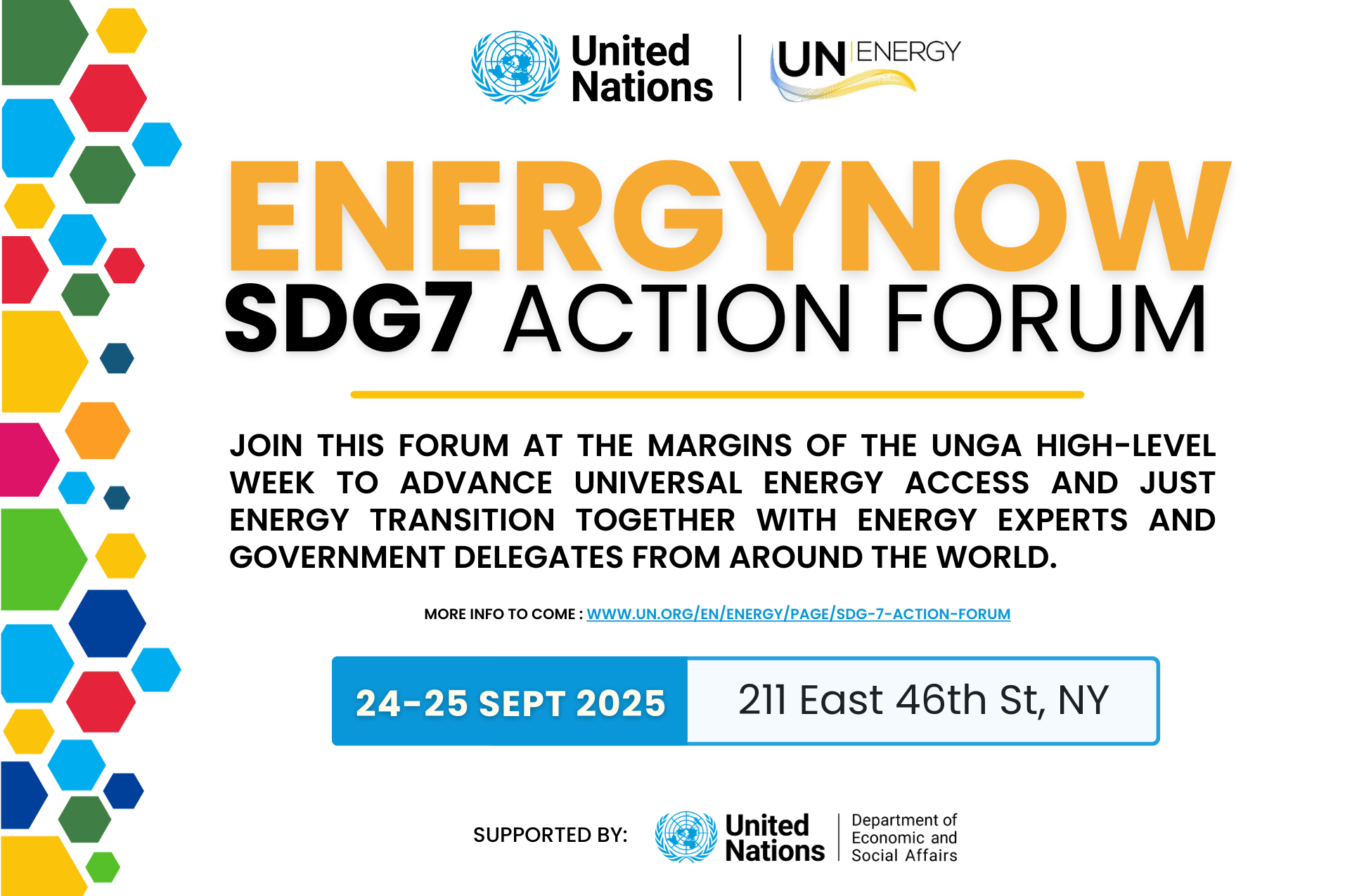
Energy Leaders and Experts Join SDG7 Action Forum to Expand Impact and Partnerships for a Just Energy Transition at Key Moment of Opportunity

SDG7 Policy Briefs Urge Governments to Prioritize
Energy Access, Scale Up Investment, Pursue Synergies

Tracking SDG7 Report Finds Energy Access
Has Improved, But Financial Support Still Needed
to Boost Progress and Address Disparities
What We Do
For further information, please contact
UN-Energy Secretariat at UN-DESA


